Merly Anai’s two-room plywood home is missing a door and sits at the top of a steep hill. Her family buys electricity from the family next door.
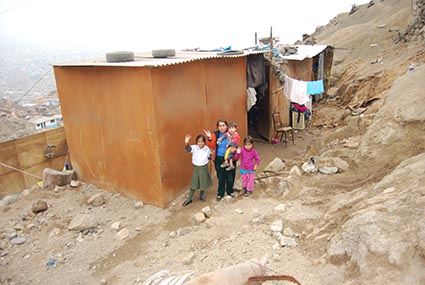
Merly Anai is the fourth child of five, and is not attending school because her mother, Tomasa, is unable to pay the school fees. Tomasa is a single mother who earns very little money working as a laundress and selling fried foods at a sports center near her home.
Her two oldest children help her support the family. Sarela works as a house maid and attends high school at night. Neiser works as a tailor’s assistant.
As I walk inside the small house, the uneven dirt floor makes my steps uncertain as I greet Merly Anai, who stares at me with wide eyes.
I break the ice by talking softly and telling jokes that make her younger brother, Jeremy, laugh and enjoy the occasion. Merly Anai keeps staring at me, however, with big eyes and without saying a word.
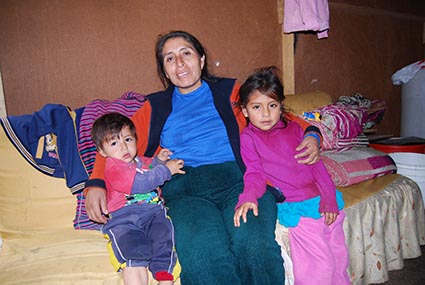
I find a few candies in my pocket and give some to Merly Anai who, in turn, whispers a soft “thank you” and smiles shyly.
I feel guilty for having forgotten that it is lunchtime at the child development center. I realize I am spoiling Merly Anai’s lunch, a very important meal that she never misses.
When the center is closed, Merly Anai and her family have no choice but to eat at the community soup kitchen, even though it’s unappetizing and not very healthy. Her family does not yet have all the necessary appliances to cook at home.
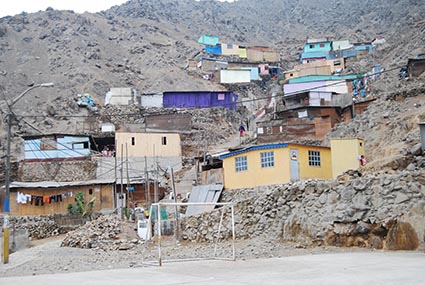
They came to Lima City only three years ago from Celendin, leaving their house and farmland behind. Tomasa tells us,
“In Lima there are opportunities to study and find a job, while at the farm you continue being illiterate all your life.”
Life in remote country areas is usually difficult because people lack most everything, including hospitals, roads, schools and job opportunities.
“Nobody used to think about the future. We just used to live day by day with whatever came.”
Tomasa is glad her daughters are encouraged to dream about the future, and that the child development center will help them prepare for the future as they grow older. When asked about Merly Anai, Tomasa shares,
“She likes school and to sing at home. She is very loving and quite attached to me, but is a shy girl.”
Merly Anai whispers to me she likes to eat rice with chicken and candy. She likes to play hide and seek and would like to be a police woman when she grows up.
Merly Anai attends the child development center three days per week, where she learns social skills while interacting with other children of the same age. She is also attending Sunday school regularly.
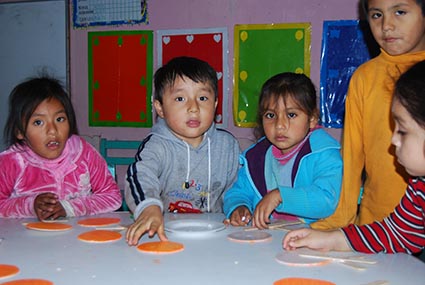
There is no doubt that the teachings and the good influence Merly Anai is receiving now will be key to her success later in life to defeat poverty.


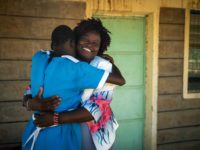




0 Comments |Add a comment